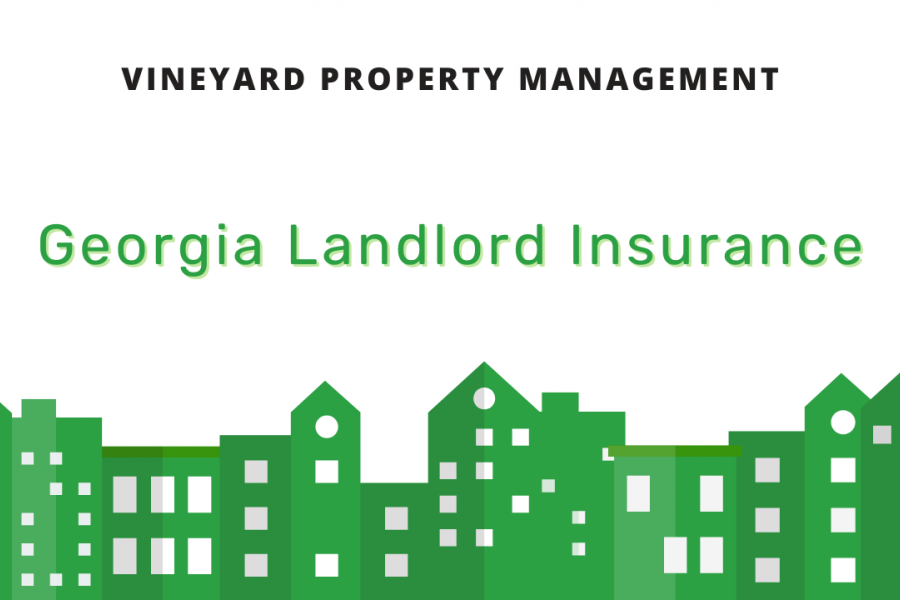
- What is Georgia Landlord Insurance?
- What is Covered by Landlord Insurance?
- What Will a Standard Landlord Insurance Policy Not Cover?
- How Can Georgia Landlord Insurance Help You?
- How Much Does Landlord Insurance Cost in Georgia?
- How Do You Calculate the Costs of a Landlord Insurance Policy?
- How Can You Reduce the Cost of Landlord Insurance in Georgia?
- Conclusion
Georgia is among the most landlord-friendly states in the country. The property taxes are lower than the average, the renter population is booming, and rental laws are relatively favorable, among other things.
With that in mind, if you’re thinking of investing in Georgia, it’s also equally important to understand the risks that it may be prone to. And that’s where landlord insurance comes in!
Georgia is prone to several natural disasters, including wildfires, hurricanes, and severe storms. In fact, the state has more than 70,000 properties listed as high flood risk. Fortunately, a landlord insurance policy can help keep your investment safe against potential disaster strikes.
What is Georgia Landlord Insurance?
Also known as rental property insurance, landlord insurance is your best defense against potential risks against your rental property. This can ensure that you don’t suffer any financial setback in case of significant property damage.
It’s important to note that landlord insurance is different from homeowners insurance. A home insurance policy covers an owner-occupied home against certain perils. Examples of such perils include theft, fire, vandalism, or weather events like wind, lighting, or hail.
On the other hand, landlord insurance is specifically meant for rental properties. And because of this, they provide additional coverage than homeowner’s insurance cover.

What is Covered by Landlord Insurance?
The following are the events that are covered by standard landlord insurance.
- Damage to Structure: Dwelling coverage is one of the insured perils under a landlord protection insurance policy. This means that you’ll be compensated if the property’s structure is damaged by a covered peril.
- Damage to Personal Belongings: A standard landlord insurance policy will also provide cover for personal items like appliances and furniture.
- Injuries: This type of damage falls under liability coverage. It covers medical bills and legal fees that you may be held liable for if someone sustains injuries on the property and sues you for related damages.
- Loss of Rental Income: With this protection, it means that you’re protected against loss of rental income as a result of a covered event. For example, if a severe storm damages your property and makes it uninhabitable.
What Will a Standard Landlord Insurance Policy Not Cover?
The following are some of the perils that a standard landlord insurance policy won’t cover.
- Tenant Belongings: Any belongings your tenant has aren’t covered by a landlord insurance policy. That’s why it’s important to require tenants to have an insurance policy of their own – a renters insurance policy.
- General Maintenance: Things will inevitably break at the property over time. Poor maintenance of the property by a difficult tenant can also contribute to damage exceeding normal wear and tear. It’s for such reasons that make regular rental inspections key.
- Intentional Damage: If a tenant commits any of these damages, you may need to make appropriate security deposit deductions. And if it isn’t enough, you may have to sue the tenant to settle the expenses.

How Can Georgia Landlord Insurance Help You?
As a GA landlord, having an insurance policy for your rental property can come in handy should severe weather strike. It isn’t uncommon for natural disasters to cause significant property damage, amounting to millions of dollars throughout a single state.
Safeguarding your property against potential perils will give you peace of mind, knowing your investment is protected.
How Much Does Landlord Insurance Cost in Georgia?
For a property valued at $200,000, you can expect to pay up to $1,494 in annual insurance costs. For a property with a value of $300,000, the landlord insurance cost may go as high as $2,599. And for a property valued at $400,000, you may have to pay up to $3,109 in landlord insurance.
How Do You Calculate the Costs of a Landlord Insurance Policy?
Landlord insurance policies are calculated based on the value of a property, coverage level, and risk factors. The more perils are covered, the more the cost of the policy will go up.
When shopping for a policy, make sure to go for one that perfectly meets your needs. The following are some questions you could ask the insurance agent before deciding on what policy to take.
- What type of perils does the policy cover?
- Does the policy cover any damage caused by tenants?
- Does the policy provide liability coverage?
- Are there any limitations or exclusions to the coverage?
- What is the deductible amount for each type of damage?
- Are there any additional coverage options available, such as flood insurance?
- What is the estimated annual premium for the policy?
- Are there any discounts for bundling policies together or being a long-term customer?
- How is your insurance company rated by independent agencies?

How Can You Reduce the Cost of Landlord Insurance in Georgia?
There are things you could do to reduce your monthly premium.
- Upgrade your roofing to storm-resistance standards.
- Pay higher deductibles.
- Make annual payments as opposed to monthly.
- Bundle different policies together.
- Amp your property’s safety and security by installing things like alarms, smoke detectors, or anti-theft locks.
Conclusion
While landlords in Georgia aren’t obligated to provide landlord insurance coverage, it’s essential. More so considering Georgia can sometimes be prone to severe weather conditions. Make sure to do due diligence before making any commitment.
Vineyard Property Management is a trusted property management company in Cobb & Cherokee Counties. We can provide you with all the help you need to run a profitable and stress-free rental investment. Get in touch today to learn more!
